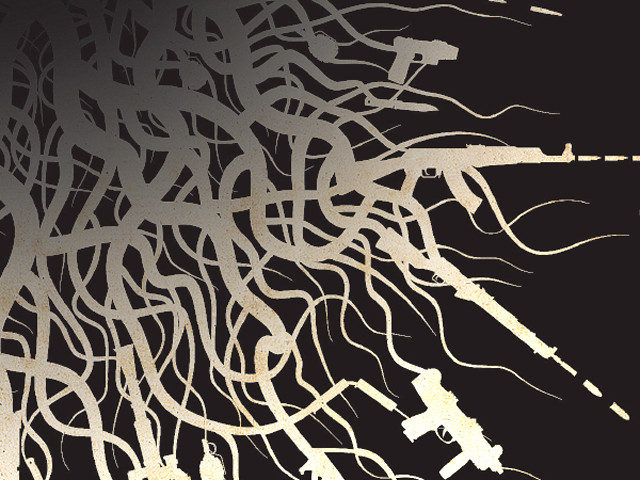
Had Pakistan paid any heed to those on the margins of society, the poorest people; those living in least serviced areas; women who live in the mainstream and don’t conform to it; artists and those who express individualism in the vernacular and religious minorities, we would have seen it coming. Qadri and his supporters didn’t fall out of the sky.
In 2004, Samuel Masih, a labourer was beaten and battered by a group of men, led by the imam of a mosque. His crime was throwing litter on the road along the wall of a mosque. The mob then handed him over to the police, accusing him of blasphemy against the mosque. He was sent to Kot Lakhpat jail, where he was diagnosed with tuberculosis and shifted to a hospital, and two policemen were deputed to provide him protection. On May 28, 2004, Samuel Masih was bludgeoned to death by Faryad Ali, the policeman who was protecting him. Ali declared he had no regrets for the murder as he believed he had secured a place for himself in paradise.
Chaudhry Bashir was under trial for blasphemy when he mysteriously died in Bahawalpur’s New Central Jail under police watch on December 7, 2004. The imam of village Jundana refused to offer his namaaz-e-janaaza, after which the local population refused to allow him to be buried in the Muslim graveyard. He was buried on private land and his family had to leave the area.
On January 14, 2005 in Multan, sixty year old Idrees Rabbani, also charged with blasphemy, died in the prison hospital. Local clerics issued a fatwa that whoever attends his funeral becomes an apostate. Baton-wielding, slogan-chanting youth prevented his burial and his body was smuggled out in the middle of the night and rushed to Faisalabad for a secret burial.
In June 2005, when police released a man accused of blasphemy on the grounds that he was mentally retarded, the police station in Shiekhupura was set on fire. The charred remains were then bulldozed and razed to the ground. The rioters then handed a list to the police, demanding suspension of the police staff, relocation of the station and that no case be registered against the mob. All demands were met. All during the era of moderate enlightenment.
There is a politics to recognising violence and this is where the entire society is complicit. From 2002 onwards, there have been low-intensity casualty-free bombings of CD/DVD shops throughout Khyber Pukhtunkhwa, averaging one a week. Hundreds of music academies housing 600 musicians in Dabgarhi in Peshawar were made to close up shop on the grounds of spreading vulgarity, and the city’s sole auditorium for performing arts, Nishtar Hall was closed down. Actresses in Multan were told to either change their profession or their names because their names insulted the Muslim women they were named after. But when the Rafi Peer theatre and Al Hamra in Lahore were bombed, people were ‘caught unaware’.
Girls’ schools have been bombed sporadically since 2003, usually at night ensuring zero casualties. Karachi University’s visual arts department was attacked in 2003 by right wing political parties for teaching a subject matter that spread ‘vulgarity and obscenity’. The Punjab University’s department of literature was purged of ‘objectionable texts’, including Hemingway’s The Sun also Rises, Swift’s Gulliver’s Travels, Pope’s Rape of the Lock and Scott’s Jewel in the Crown. The moderate Vice Chancellor of Swat University was shot dead. But when the threat came to elite schools in Lahore, Karachi and Islamabad during the Swat operation, we panicked at the ‘newfound threat’ and put armed guards on roofs and metal detectors at school entrances.
A rudimentary reflection of targets of militants shows that in the early years of the war on terror, apart from the constant killings of security personnel, the targets were minorities, churches and foreigners. Later, the focus shifted towards Shias and sects within the fold of Islam. More recently, the attacks have been on ‘mainstream Muslims’, Taseer being a case in point, others being the killings of anti-Taliban religious clerics and tribal lashkar leaders.
This is not meant to suggest a coherent, singular strategy carried out by a centralised leadership. The Tehrik-e-Taliban is primarily Wahabi, whereas blasphemy against the Holy Prophet (PBUH) is primarily a rallying point of Sunni Barelvis. Within the Barelvis and Wahhabis, there are numerous factions, and the strength of rallying around the current blasphemy law crisis could determine which of the two claims the mantle of leadership. The point of relevance is that the fundamentalist dragnet is closing in. Whatever their inter-group dynamics, there is temporary consensus on establishing a religious hegemony and whose brand of Islam will reign is a deferred battle.
The liberal consensus after Taseer seems to be that religion is the one thing that brings down mental shutters and even reasoned debate on it is no longer possible. As usual, the liberal consensus stops short. The parameters are not being drawn only around who the proper religious authorities are or what interpretations are correct. It goes much further and deeper than that. This may not be as starkly visible because so far we are allowed enclaves of dissent. As the website of Jamaat-i-Islami women’s wing states, “Attempts at inner transformation remain hidden till the results have been achieved.”
The right wing does not raise its socio-cultural agenda as a distraction from their political ineptitude as commonly thought; it is central to their politics. General Zia’s Islamisation drive of the 80s, from religicising the curriculum (one molecule of oxygen and two hydrogen atoms will bond with Allah’s permission to produce water) to making head covering mandatory for women to bans on music and repressive press censorship — these were not parallel to Zia’s jihad agenda in Afghanistan and Pakistan, they were pivotal. A society willing to discard its cultural identity and vilify its repositories loses its moorings, making it receptive to the imposition of new cultural and ideological identities.
On the other hand, there is little resistance. The Musharraf-era experiment of banning loudspeakers in mosques to prevent hate speech is redundant, as television has stepped in as a replacement. The fatwas can now surpass the five kilometer cutoff and are broadcast live to millions.
The religious alliance of the MMA under whose government the social fabric of Khyber Pakhtunkhwa was decimated escapes censure whereas others get raked over the coals — they will probably return as arbiters of power once the state decides to bring the ‘good Taliban’ to the parliamentary negotiating table. Mainstream parties on the other hand have combated religious political forces by co-opting their rhetoric, to the current juncture where possibilities of a plural, progressive and democratic state are increasingly limited.
Civil society is everyone’s favorite punching bag and its ineffectiveness a regular tagline. But the notion of civil society rests on associations — whereas the forms of association in Pakistan, the biraderi, clan, caste, tribe, and linguistic connections remain inimical to democracy.
Incidents such as Samuel Masih’s killing are within the domain of public knowledge, but have remained beyond public consciousness. Instead of reacting in isolationist shock and horror, we need to join the dots to see the proverbial bigger picture before beginning to strategise how to deal with it. That should make it clear that it is not just about particular discriminatory laws, and that trying to get find counter-fatwas or allowing the right wing to set the terms of the discourse will not work. Otherwise we will remain suspended between contesting Tafseers and protesting Taseers.
The writer is a social analyst and development consultant.
Published in The Express Tribune, Sunday Magazine, January 16th, 2011.


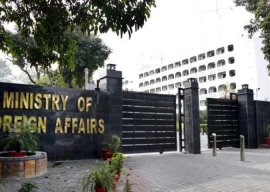

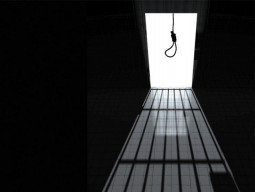





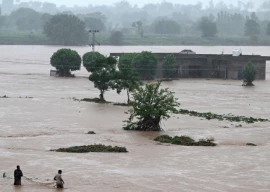
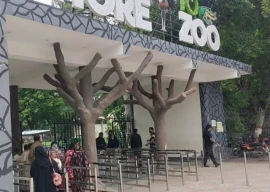






COMMENTS
Comments are moderated and generally will be posted if they are on-topic and not abusive.
For more information, please see our Comments FAQ